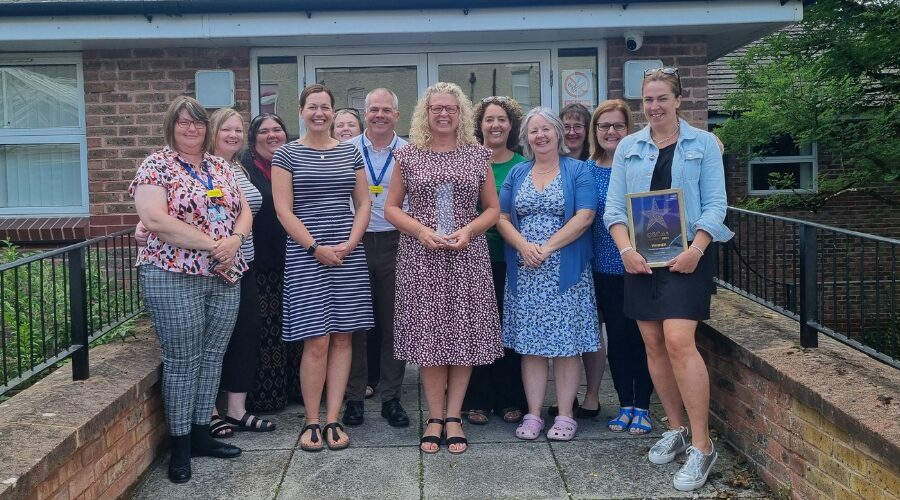
Spotlight
How SAINT is helping young people to access routine vaccinations
Every year, over 72,000 young people in Somerset are offered their national, routine childhood immunisations – and our School-Aged Immunisation Team (also known as SAINT), are the ones driving across the county to deliver them.
The team has been delivering the programme of vaccinations to children in schools, and those home-schooled or otherwise not in school, for a number of years. It’s no easy task, but the team works incredibly hard each year to ensure both the young people and their parents or carers are well-informed about the vaccinations available.
“We try to ensure that everyone has the right information, to help them make informed decisions about whether or not to take up the offer of vaccinations,” explains Ian Angell, operational manager for SAINT.
“Operationally it’s a huge programme, with different teams covering the east and west of the county, and an amazing team of administrators behind the scenes to coordinate everything, and be the first-point-of-contact for many parents or carers looking for advice and guidance.
“The programme is split across three school terms – autumn, spring, and summer – with each vaccination being offered at a different point of the school year, to varying year groups. We also have catch-up clinics that run throughout the summer – so there really is no down time for the team!”
SAINT delivers the flu, human papillomavirus (HPV), meningococcal disease strains A, C, W, Y (MenACWY), diphtheria tetanus and polio (Td/IPV), and measles, mumps and rubella (MMR) vaccines, resulting in around 65,000 total vaccinations given out each year.
“Within our county, the National Census 2021 survey data says that 49.6% of households are facing deprivation in at least one dimension – that could be education, employment, health, or housing,” continues Ian.
“As a team, we want to make sure that that deprivation doesn’t have an impact on our young people, giving everyone equal opportunity and access to their vaccinations, so there’s a lot we do to support families.”
The team works closely with schools with low uptake numbers, providing additional support such as helping those who struggle to use technology by completing paper forms or phoning parents to take verbal consents, completing consent forms with parents or carers in the playground at the start or end of the school day, and reducing anxiety-driven refusals by having out of school clinics for longer time-slots.
A lot of work has also gone into addressing immunisation inequalities, and team has created tools to help children with special educational needs (SEN) requirements, and those who are needle-phobic.
Ian concludes: “All of the work the team is doing has had a hugely positive impact on the take-up of vaccinations across the county. There are less concerns from parents and carers, and largely positive feedback from the schools and local communities we work closely with, from parents and carers, and most importantly, our young people.”

